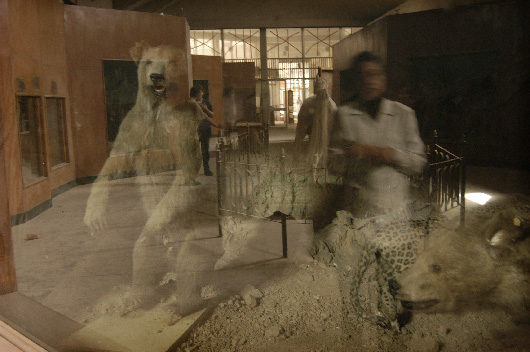University of Baghdad Museum of Natural History

I was inside the (stuffed) polar-bear exhibit when an Iraqi woman stopped at the window to watch me crawling around inside her diorama (which also included hyenas and a leopard). Her name was Luma Ateya, and she introduced herself, and took Nicole Bowmer (a U.S. writer, and the principal editor of my book on Iraq) and I on a short tour of the campus.
When we started talking with her about the writers she most loves (Yeats, for example) it became clear to me (for the gazillionth time) how little I know about writers in my own language.
I imagine that many American journalists who’ve worked in Iraq have similar experiences—meeting Iraqis who can talk about English literature, and the language itself, with greater depth (and passion) than those who were “born” speaking it. It’s both flattering—that other people love this language we speak—and something of a condemnation. As I write this, I can feel the condemnation of myself growing; Luma learned English under a brutal regime, and then saw her country further shredded by men who spoke in the tongue of her beloved poets.
I later wrote a letter in support of Luma getting refugee status in the U.S.; she attended Dartmouth College and graduated with a master’s in English Literature. We’ve exchanged a few emails since, and I know she likes living here, but even with so many books, and libraries, and people with whom to practice language ... it’s a poor substitute for home.